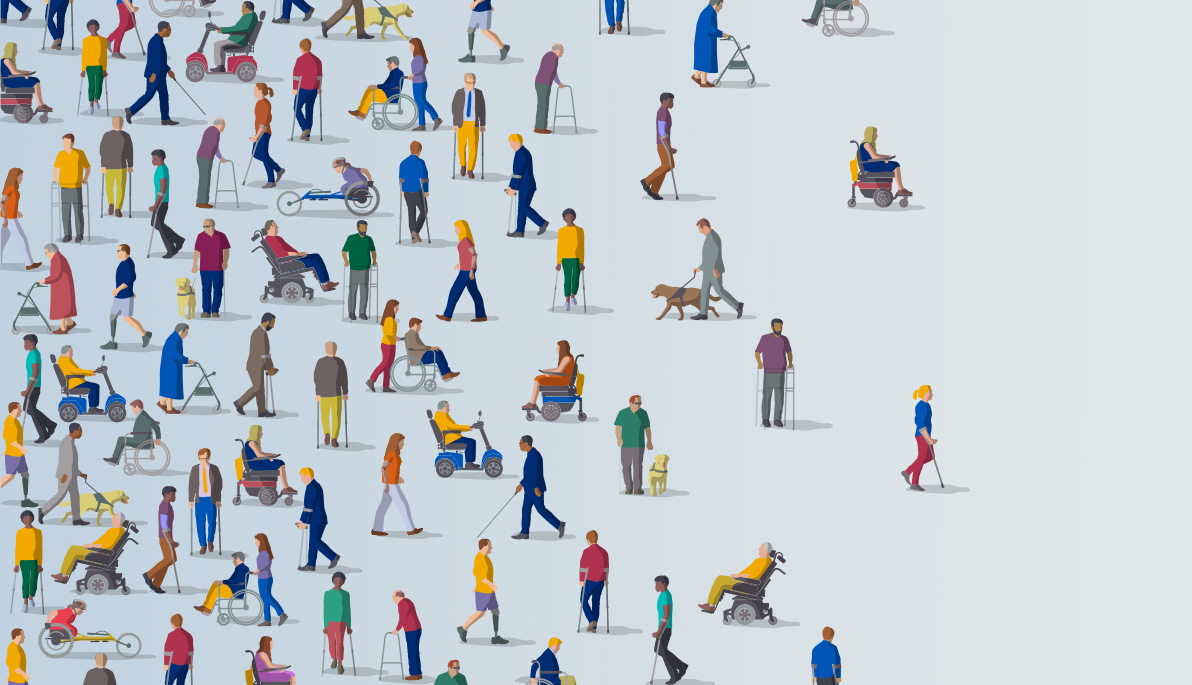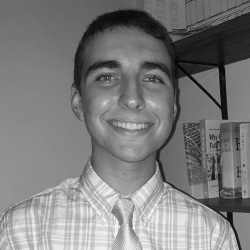News
Universal Design and Rethinking Accessibility
March 26, 2021
On March 18, the New York Tech community came together for “Universal Design and Rethinking Accessibility,” part of the ongoing Diversity, Equity, and Inclusion (DEI) Series to help engage individuals in discussions about current social issues. During the virtual event, led by fourth-year computer science major Maria Vladucu (B.S. ’21), faculty and staff spoke about how universal design can help create equity in society, especially for those with disabilities.
Questions such as “What can be done to prepare students with a disability for a shift from secondary school to university?” and “What aspects of universal design are commonly overlooked and misunderstood?” were discussed. Alexander Lopez, J.D., associate professor and chair of occupational therapy, and Walter Mayer, assistant director of accessibility services in the Department of Counseling and Wellness, shared their expertise.
“Cognitive disabilities aren’t seen by many individuals. People can be perceived as typical, like everyone else. For example, when doing things like filling out employment applications, an individual with cognitive disabilities may require assistance or an adaptation for the application but can still do the essential function of the job they are applying for,” explained Lopez. “The ADA [Americans with Disabilities Act] requires that individuals not be discriminated against if they can perform the essential functions of a job with or without reasonable accommodations. In our society, people are often disabled by the environments of which they live and work.
Evan Monod, a Georgetown University graduate who has cerebral palsy, described the challenges he faced, including how the school pushed him to take lighter courses due to his condition, but he refused. Although he said it was challenging, he graduated magna cum laude and is now studying law at George Washington University.
Marsha Lampert (M.B.A. ’90, CERT ’98, M.A. ’00) talked about her personal dilemmas relating to her dwarfism and other health issues, such as almost being expelled from a previous institution for unsatisfactory progress and having constant challenges due to her dyslexia. At the time, her neurologist told her that she wasn’t failing, the school was failing her. Lampert is now a motivational speaker for people with dyslexia, dwarfism, and other health issues and tries to pave the way for students who may be in a similar situation.
“Entering college is a huge life shift,” said Mayer. “When you’re talking about a student who used certain types of services in high school and then arrived at college and the system is different, it is a big change.” Mayer recommended that college faculty learn about their students’ background and should be given the resources to help them.
At New York Tech, the Office of Accessibility Services actively supports students in the pursuit of their academic and career goals. All services pertaining to students with disabilities are coordinated by this office and are meant to foster a barrier-free academic environment.
Learn more:





